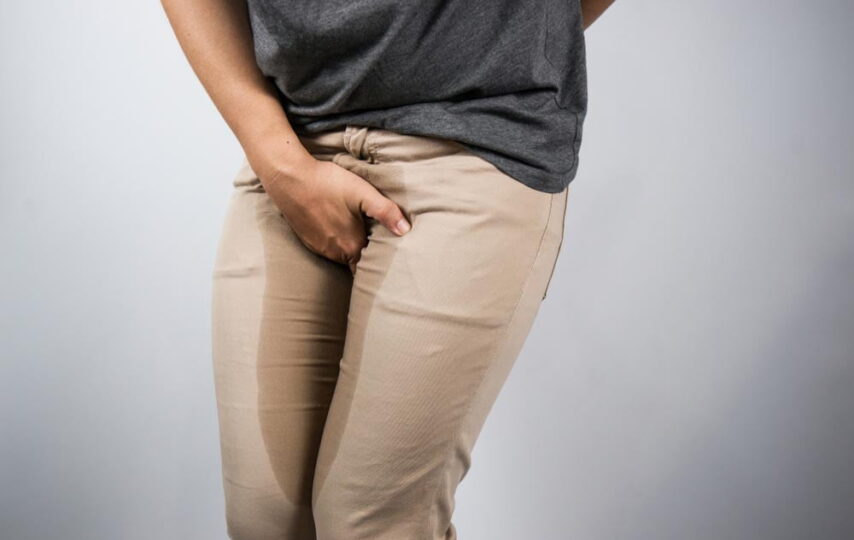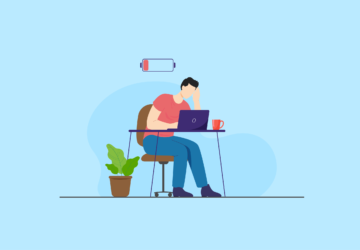The involuntary leakage of urine is known as urinary incontinence. The urinary sphincter’s control is either impaired or lost. This condition affects a large number of people. The intensity might vary from occasionally dripping pee during cough or sneeze to having a swift and severe urge to urinate that stops you from reaching a toilet in time.
TYPES OF INCONTENENCE
Stress Incontinence: Coughing, sneezing, laughing, exercising, or lifting something heavy puts strain on your bladder, causing urine to flow.
Urge incontinence: One suddenly experiences a strong urge to urinate, which is tailed by an involuntary loss of urine. You might have to urinate frequently, including at night. Urge incontinence can be caused by a small illness, such as an infection, or a more serious ailment such as a neurological problem or diabetes.
Overflow Incontinence: Due to a bladder that does not empty entirely, you endure frequent or continual dribbling of urine.
Functional incontinence: A physical or mental condition by which you are unable to reach the toilet in time. For example, if you are suffering from severe arthritis, you may not be able to unbutton your pants quickly enough.
Mixed incontinence: It is a type of incontinence that occurs when You have more than one form of urine incontinence; most commonly, this is a combination of stress and urge incontinence.
CAUSES OF INCONTINENCE
Temporary Urinary Incontinence
Diuretics are beverages, foods, and drugs that stimulate your bladder and increase the volume of pee you produce. They are as follows:
- Alcohol
- Caffeine
- Sparkling water and carbonated beverages
- Sweeteners made from artificial sources
- Chocolate
- peppers de Chile
- Spice, sugar, and acid-rich foods, particularly citrus fruits
- Medications for heart disease and high blood pressure, as well as sedatives and muscle relaxants
- Vitamin C in high concentrations
Urinary incontinence can also be caused by a medical disease that is easily treated, such as:
- Infection of the urinary tract. Infections can irritate your bladder, resulting in frequent urination and, in rare cases, incontinence.
- Constipation. The rectum is close to the bladder and shares several nerves with it. The overactivity of these nerves in your rectum is caused by hard, compacted stool, which increases urine frequency.
Additionally, urinary incontinence may be a chronic disorder brought on by underlying physical issues or modifications, such as:
- Pregnancy: Stress incontinence can be brought on by hormonal changes and the growing fetus’ weight.
- Childbirth: A lowered (prolapsed) pelvic floor can result during vaginal delivery, which can impair the muscles required for bladder control and harm the bladder neurons and supporting tissue.
- Age-related changes: The bladder’s ability to hold urine can be reduced by the bladder muscle ageing. Additionally, as you age, you experience more frequent involuntary bladder spasms.
- Menopause: Women produce less estrogen, a hormone that keeps the lining of the uterus healthy, after menopause. Failing of these tissues can worsen incontinence.
- Prostate enlargement: Incontinence frequently results from the growth of the prostate gland, a condition known as benign prostatic hyperplasia, especially in elderly men.
- Prostate cancer. Men who experience urge or stress incontinence may also have untreated prostate cancer. However, incontinence is more frequently a side effect of prostate cancer therapy.
- Obstruction. Overflow incontinence can result from a tumor anywhere along the urinary system blocking the normal flow of urine. Urine leakage can occasionally result from urinary stones, which are hard, stone-like masses that develop in the bladder.
TREATMENT FOR INCONTINENCE
There are several possible treatments for urine incontinence.
- Bladder training. You could be urged to perform specific activities that can improve your bladder control, such as pelvic floor exercises or bladder training.
- Behavioral therapy: Depending on the cause, controlling your fluid intake, changing your diet, or going to the bathroom at set times before you feel the desire to go may help you manage bladder incontinence.
- Condition monitoring: Treating the underlying problem that is causing your urine incontinence, such as constipation or a UTI, may also help your incontinence.
- Medication: Depending on the reason of your bladder incontinence, medication may occasionally be helpful. A class of medications called antimuscarinics is used to treat an overactive bladder.
- Catheter installation: A doctor may advise the implantation of an internal or external catheter to help manage overflow incontinence or, in some situations, functional incontinence if your urine incontinence is chronic and seriously hurting your quality of life.
- Weight loss: Since losing weight can reduce pressure on your bladder, a doctor may advise it to help manage your symptoms.
- Absorbent undergarments: Use pads or absorbent undergarments, such as washable and reusable underwear or disposable panties, to assist stop tiny leaks.
- Reducing bathroom barriers: If you’re having problems finding your way to the restroom, particularly at night, think about keeping a clear and well-lit path to make it as easy as possible for you to get there.
A urologist may be able to help treat your urinary incontinence by resolving the health issue that’s causing it. Best urologist in Lahore is available for consultation through oladoc. You can also opt for a consultation with an online urologist.







